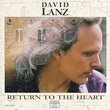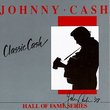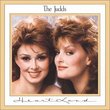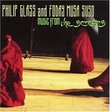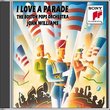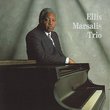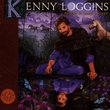| All Artists: George Frideric Handel, Alan Curtis, Il Complesso Barocco, Lawrence Zazzo, Veronica Cangemi, Marianna Pizzolato, Antonio Abete, Max Emanuel Cencic, Filippo Adami, Neal Banerjee Title: Handel - Fernando / Zazzo, Cangemi, Pizzolato, Abete, Cencic, Adami, Banerjee, Il Complesso Barocco, Curtis Members Wishing: 0 Total Copies: 0 Label: Virgin Classics (EMI) Original Release Date: 1/1/2007 Re-Release Date: 2/6/2007 Genre: Classical Styles: Opera & Classical Vocal, Chamber Music, Historical Periods, Baroque (c.1600-1750), Classical (c.1770-1830) Number of Discs: 2 SwapaCD Credits: 2 UPC: 094636548326 |
Search - George Frideric Handel, Alan Curtis, Il Complesso Barocco :: Handel - Fernando / Zazzo, Cangemi, Pizzolato, Abete, Cencic, Adami, Banerjee, Il Complesso Barocco, Curtis
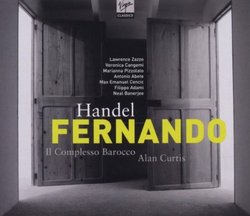 | George Frideric Handel, Alan Curtis, Il Complesso Barocco Handel - Fernando / Zazzo, Cangemi, Pizzolato, Abete, Cencic, Adami, Banerjee, Il Complesso Barocco, Curtis Genre: Classical
2 CD SET CURTIS/COMPLESSO BAROCCO |
Larger Image |
CD DetailsSynopsis
Product Description 2 CD SET CURTIS/COMPLESSO BAROCCO Similarly Requested CDs
|
CD ReviewsA missed opportunity Webster Forrest | London United Kingdom | 02/26/2007 (1 out of 5 stars) "Despite the presence of first rate singers Cangemi, Zazzo and Cencic in this recording, this is one of the most boring recordings of an opera I've heard to date. This must be ascribed to the unimaginative direction by Curtis, a cast otherwise containing competent to mediocre singers and an uninspired ensemble which sounds small and ineffective in the more dramatic moments. The score is not remarkable when compared with "Alcina" or "Tamerlano", however it does contain many items of interest: 'Dite pace', 'Fra l'ombre', 'Cuor di madre' to name but a few. This recording is only worth the purchase as it attempts to recreate Handel's original intention of setting the drama in renaissance Portugal instead of the mythical antiquity of Sosarme, Re di Media. The much older recording with Alfred Deller as Sosarme should remain preferable overall, as it is more energetic and engaging than this present dull recording. What this project needed in my opinion was a Minkowki or a Jacobs at the helm." Another Winner from Curtis and Handel Robert M. Nichols | 04/26/2007 (5 out of 5 stars) "Again Alan Curtis has demonstrated that he is the premier interpreter of Handel's operas. The music and singing contained in "Fernando" are very soothing to the ears and uplifts your spirit. Like a fine wine it improves with every successive partaking. Not to wear you out with cliches but it truly is an oasis in an otherwise insane world. Thank goodness there is music like this being produced. If you're a fan of Handel, Baroque music, or Alan Curtis don't walk but run (i.e. click your mouse) and purchase this CD without another moment's hesitation. Don't be dissuaded that there are only two CDs contained herein. The first CD contains 71 minutes of music and the second 77 minutes. Enjoy!" A Diamond from Curtis & Co. Morten Fuglestad | Norway | 12/02/2008 (4 out of 5 stars) "It is not a surprise that Sosarme, Re di Media (which was the name this opera had it's premiere under in 1732) was a huge success. The plot of hostillity between a father and a son is timeless, but in 1732 the relations between King George II and Frideric, Prince of Wales, were ice cold, and was at the centre of gossip and politics in England. The public took interest in the subject and perhaps this issue also was a main inspiration for Handel in composing this opera and choosing this libretto, which probably had been gathering dust on Handel's shelves for about 25 years at this point.
It was probably the touchy relations with Portugal (an important allied to Britain) that made Handel switch the tittle from Fernando, Re di Castiglia to Sosarme, Re di Media, when he set about to compose Act III, and thus change the names of the characters. By this easy change of names Handel showed that the opera was not a commentary on political issues in Portugal, but rather on the theme of reconcilliation of a father and a son. Charles Burney (a leading historian of music in second half of the 18th century) thought highly of this opera and deemed it one of Handel's best. The first aria (Handel's only aria in B-major) in the opera (I;1), beautifly sung by Veronica Cangemi (Elvida), is very moving and should be "canonised" into the main repetoire of sopranos. Also the duet "Per le porte del tormento" (II;8) is stunning, and Burney mentions this particullary as a true masterpiece. Here Elvida sings together with Fernando (Lawrence Zazzo), and this duet is perhaps worth the two CDs alone. The tenor Filippo Adami (Dionisio, king of Portugal) has one of the most demanding parts in this opera. Adami is a good actor and infuses the role with a tremendous sense of energy. Antonio Abete's bass (Altomaro) is also full of life, which is remarkable, as Curtis' casting of the bass Vito Priante in Vivaldi's Montezuma was a real letdown. Abete has nouances in his voice that is ideal to his interpretation of the villain's part. Altomaro isn't Handel's most interesting psycological portrayal of a villain, but he certainly composed some impressive music to his famed bass Mantagnena for this opera, and Abete is perfect for this. Fernando is sung by counter-tenor Lawrence Zazzo. His interpretations are not so tastefull as i.e. a Phillipe Jarousky (which I belive would be ideal in this part) surely would have sung it. However Zazzo has a real sense of drama and heroism in the war-like arias and is moving in the more sensual arias. The other counter-tenor part, Sancio (Fernando's half-brother), is sung by Max Emanuel Cencic. His part in the plot is quite important, and could, with a little rewriting of the libretto, have been the protagonist. Cencic's interpretation of Sancio's first aria "Si, si minacia" (I;6), where his over-genorous use of vibrato in order to portray vengance threatening to destroy the kingdom, seems to go dangeroulsy near the pathetic. In other arias he showes a more interesting use of his voice, and on the whole he is a good singer. It is also very nice to have Veronica Cangemi in such a splendid role where this rising star is given sufficient room to shine. Curtis' conducting is dramatic and brings shades and light to the music without sacrificing poetry to drama. He is alert to the different rethorical modi which the arias calls upon and pushes the story forward with his deep sense of the drama's logical unity. As Curtis' interpretation of Deidamia (Handel's last opera) showed, he is not at all suited to the humorus modes in Handel. There are however no comic elements in Fernando, and this fullfledged seria opera is more in his vein. The recording (2005) from Tonhalle, St. Gallen, is quite dry and renders the bass a little wooly. You will certainly not find the close microphone sound of many of todays baroque-orchestras, but if you like the sound (and approach to Handel) of his compatriot Nicholas McGegan, this recording will certainly prove a very succesfull one. " |

 Track Listings (33) - Disc #1
Track Listings (33) - Disc #1

